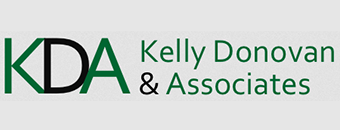Get known in your field: 3 ways
Introductions will be smoother when people have already heard of you. Doors will open more readily. And employers may be contacting you instead of the other way around.
Building this kind of awareness for your personal brand takes time, but it’s worth it. Here are a few of my favorite strategies.
1. Publish, publish, publish—both online and offline.
Never before have there been so many opportunities to publish content that demonstrates your expertise.
Traditional examples include articles for trade publications, op-ed submissions for general interest publications, and contributions to newsletters—however small or large the audience.
Don’t be afraid to approach a publication with a contribution; just make sure you read that publication regularly and understand what kind of content would be suitable.
You can also start your own blog or write for an existing industry blog. Having your own blog can be labor-intensive, but it allows you to publish as frequently as you want, and it also gives you the ability to build a home for your brand on the web.
If you’re ambitious, consider writing a book or e-book. In this age of e-books, self-publishing, and print-on-demand services, you don’t need to worry about finding a publishing company to print your book.
Use social media to amplify whatever you publish by posting links to it and getting friends to share it with their networks.
2. Get featured or quoted in the media.
Depending on the nature of your profession, you might have found yourself in the media spotlight at some point—or the mere thought of being in the media might be unfamiliar territory.
If a media outlet of any kind (print, radio, online, TV) features you or includes quotes attributed to you, that inclusion reinforces your expert status. Don’t be shy—if you’re fairly accomplished in your career and stay current in your industry, you probably have value to offer.
Seek coverage by reaching out to reporters who cover relevant topics for print or online publications that cover your industry.
A great way to identify journalists is by reading articles related to your expertise and paying attention to who writes them. Often, the writer’s email address is provided—it doesn’t get much easier than that!
Be sure to present yourself as someone who’s offering to share expertise on a topic related to your industry that is currently in the news. Suggest an article topic that you could comment on, or offer yourself as an expert source for future research.
And remember that most of the value of media coverage comes from what you do afterwards. If you never mention it to anyone, you won’t get much value from it; but if you add it to your bio, include it on your LinkedIn profile, and link to it on your blog, you’ll get a lot more mileage from it.
3. Speak and train on relevant topics at both traditional and virtual events.
Sharing your knowledge with an audience is a powerful way to energize your career.
Identify organizations that would benefit from having you as a speaker, and reach out to them to pitch your proposed presentation. If you’re a member of a professional association in your industry (you should be!), this is a great place to start.
Keep in mind that virtual training seminars held by teleconference or via the web are very common nowadays, and organizations need speakers for these events, too.
Promote your speaking engagements on social media; in addition to drawing attendees, your network will take note of your growing stature in your field.
These are just a few of the ways you can make yourself known. What other approaches do you use, or plan to use?
This article by Kelly Donovan originally appeared as a guest post on Tim’s Strategy.



